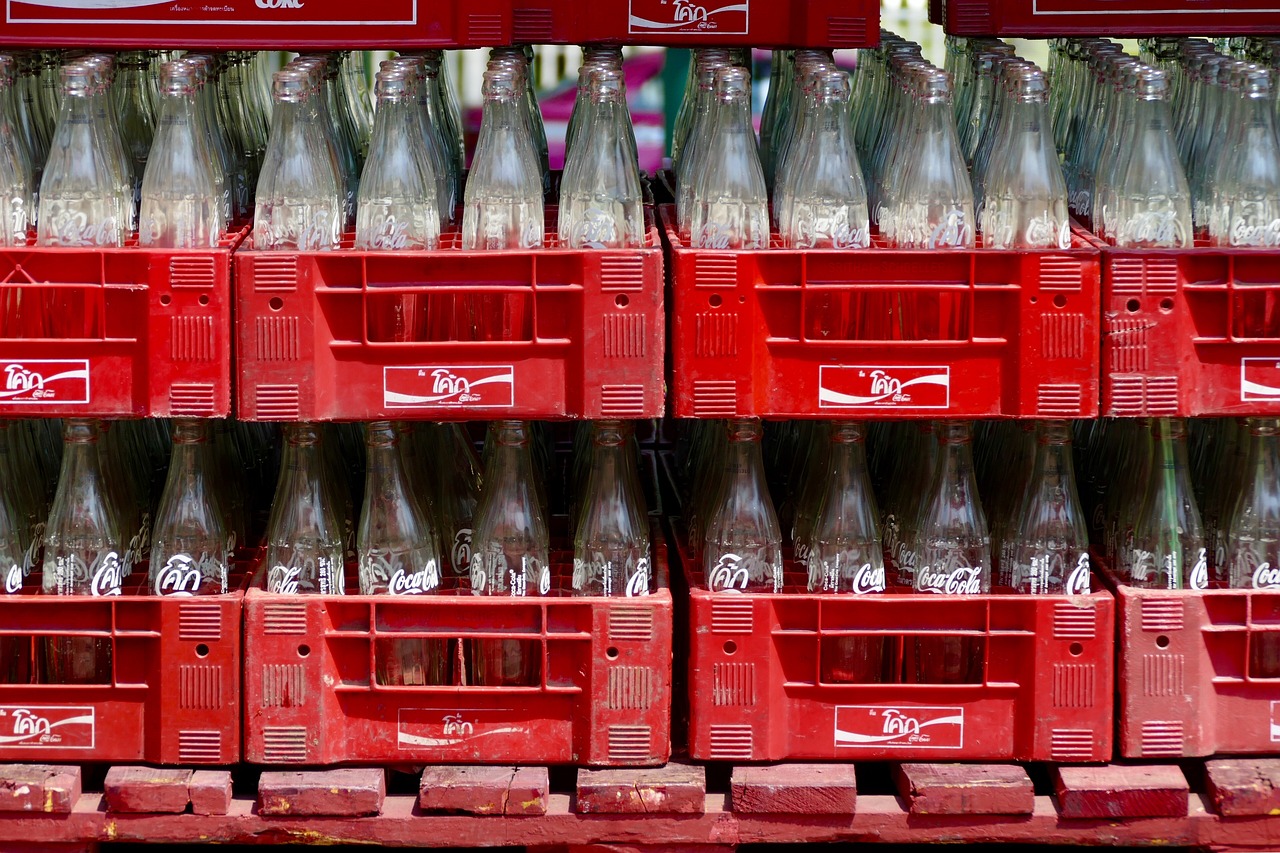As an event planner, you understand that the success of any event is judged not only by the enjoyment of the attendees but also by how efficiently and responsibly you handle the logistical aspects. One key area, often overlooked, is the handling of food and beverage waste. Unfortunately, events generate a substantial amount of waste, much of which comes from the food and beverages served. This situation calls for a strategic approach, one that can seamlessly integrate with your existing event planning routine. And that’s where we come in!
Today, we’ll be discussing sustainable event planning, a topic that’s not only environmentally responsible but is fast becoming a crucial part of successful event management. By the end of this article, you’ll walk away with ten actionable tips, each worth 1000 words of detail, which will drastically change how you handle food and beverage waste at your events. These steps won’t just help the environment, they’ll also improve your reputation, boost the appeal of your event, and could even save you money.
Now, let’s start our deep dive into sustainable event planning!
PLAN ACCURATELY TO REDUCE FOOD AND BEVERAGE WASTE
When it comes to minimizing waste at events, the importance of accurate planning cannot be overstated. An overestimation or underestimation of your audience’s needs can lead to excess food and beverages, which ultimately become waste.
To start, take the time to thoroughly understand your attendees’ profiles. Consider their preferences, dietary restrictions, and even cultural norms when determining your menu. This information will be crucial in deciding the quantity and variety of food and beverages required.
Moreover, leverage previous event data if available. Historical records can provide a more accurate estimate of the consumption patterns of your guests, enabling you to adjust the portions accordingly. For example, if you find that only half of your attendees choose to have dessert, it might be a good idea to reduce the quantity of sweets you order.
Also, communicate openly with your catering service about your expected turnout. They are experts in their field and can offer valuable advice based on their extensive experience. Most caterers would rather adjust their delivery than deal with excessive leftovers.
Remember, your ultimate goal here isn’t to deprive your attendees of choice or quantity. It’s to ensure that everyone enjoys the food and drinks without leaving behind a mountain of waste.
WORK WITH ENVIRONMENTALLY RESPONSIBLE CATERERS
The second tip for sustainable event planning is to work with caterers who share your commitment to minimizing waste. This is a significant step in the right direction, as these caterers likely have measures in place to reduce food waste and are open to further innovative ideas.
Before choosing a catering service, make sure to ask about their waste management practices. For instance, do they source their ingredients locally to reduce their carbon footprint? Do they offer compostable or reusable serving ware? And importantly, do they have a plan for leftover food?
A responsible caterer will have considered these points and will have answers ready. They may even offer options for donation to local food banks or shelters, or composting services for any unavoidable food waste. By choosing a caterer that’s aligned with your sustainability goals, you can ensure that the food and beverage aspect of your event contributes to rather than detracts from your overall environmental efforts.
IMPLEMENT A RECYCLING AND COMPOSTING SYSTEM
One of the best ways to handle food and beverage waste at your event is by setting up a recycling and composting system. This can be quite an undertaking but remember, every little step toward sustainability counts.
Firstly, partner with a local waste management company that offers recycling and composting services. They can guide you on the correct ways to separate waste and may even provide you with appropriate bins and bags.
Educate your attendees about this system. Make sure that the bins are clearly labeled and have signs that explain what type of waste goes into each bin. For instance, a recycling bin might be for cans and bottles, while the composting bin is for food scraps and compostable plates and cutlery.
Furthermore, you could consider appointing volunteers or staff members to oversee the waste stations and guide the attendees. This ensures that waste is properly sorted and the system isn’t compromised due to confusion or oversight.
Remember, a well-implemented recycling and composting system not only reduces waste but also sends a strong message to your attendees about your commitment to environmental sustainability.
OFFER REUSABLE DISHWARE AND CUTLERY
The fourth step in our guide to sustainable event planning involves rethinking the serving ware used at your event. Single-use plastic dishes and cutlery are harmful to the environment and contribute significantly to event waste.
Opt for reusable dishware and cutlery instead. Yes, this option involves additional coordination for cleaning and returning the items, but the positive environmental impact is worth the extra effort. If this isn’t feasible, consider using compostable or biodegradable alternatives. There are many companies offering these products, made from materials like bamboo, palm leaves, or cornstarch.
It’s also crucial to communicate this choice to your attendees. Let them know why you’ve chosen reusable or compostable materials over single-use plastic. This information not only validates your decision but can also inspire attendees to make similar choices in their lives.
PROVIDE WATER STATIONS INSTEAD OF BOTTLED WATER
Bottled water is a common sight at events, but it’s also a significant contributor to plastic waste. A more sustainable alternative is to provide water stations where attendees can refill their own reusable bottles.
These stations can be as simple or as elaborate as you want. They can be simple coolers filled with ice-cold water, or they can be designed to match your event’s theme. The key here is to ensure that they’re easily accessible and that there’s enough water for everyone.
Inform your attendees in advance that you’ll be providing water stations and encourage them to bring their own bottles. If you’re concerned that not everyone will bring a bottle, consider providing reusable ones as part of your event swag. Not only does this reduce waste, but it also offers a unique branding opportunity for your event or sponsors.
ADOPT DIGITAL TICKETING AND PROGRAMS
While this may not be directly related to food and beverage waste, it’s an essential part of sustainable event planning. A significant amount of paper waste is generated through tickets and printed event programs.
Switching to digital ticketing platforms and apps for event programs can drastically reduce your event’s paper waste. Not only does this save trees, but it also makes your event more accessible to tech-savvy attendees who prefer having information at their fingertips.
In the event that physical tickets or programs are absolutely necessary, make sure to print on recycled paper and encourage attendees to recycle them after use. In fact, you could have a designated recycling bin for these items at exit points.
OPT FOR BULK PURCHASES WHERE POSSIBLE
When you’re procuring items for your event, whether it’s ingredients for your menu or giveaways for your attendees, consider making bulk purchases. This method can significantly reduce the packaging waste associated with individual items.
However, bulk purchasing requires careful planning. It’s essential to accurately estimate your needs to prevent surplus that could become waste. Also, keep in mind the storage requirements for bulk items, particularly perishable ones like food ingredients.
DONATE EXCESS FOOD AND BEVERAGES
Despite your best planning efforts, there may still be some excess food and beverages at the end of your event. Rather than discarding these items, consider donating them to local food banks, shelters, or other charitable organizations.
Most places have specific guidelines for food donations, so it’s essential to understand these beforehand. Partnering with a food rescue organization can make this process easier, as they often handle the collection and distribution of the food.
Remember, food that’s safe and good enough to eat should never go to waste, especially when there are people in our communities who could benefit from it.
ENGAGE ATTENDEES IN YOUR SUSTAINABILITY EFFORTS
In your journey towards sustainable event planning, don’t forget to engage your attendees. After all, they are integral to your event’s success and can significantly impact the amount of waste generated.
Start by communicating your sustainability efforts and goals. Use your event’s website, social media platforms, and email communications to inform attendees about your commitment to reducing food and beverage waste. Let them know how they can contribute – whether it’s by bringing a reusable water bottle, properly sorting their waste, or choosing plant-based food options.
At the event itself, consider having a sustainability booth or dedicated volunteers who can answer any questions attendees might have about your initiatives. This not only raises awareness but also ensures your attendees feel a part of your green mission.
Remember, every individual can make a difference, and collectively, we can make a significant impact.
EVALUATE AND IMPROVE
The final point in our guide to handling food and beverage waste at events is perhaps the most important – evaluating your efforts and making improvements.
After your event, take the time to assess how well your waste reduction strategies worked. Did you have a lot of leftover food? Were the recycling and composting bins used correctly? Did many attendees bring their own water bottles? Gathering and analyzing this data will give you valuable insights into what worked and what didn’t.
Make sure to celebrate your successes, but also take a hard look at areas where you fell short. Was there a specific step in your plan that didn’t go as expected? If so, think about how you can improve it for the next time. Sustainability is a journey, and there will always be room for growth and learning.
CONCLUSION
We hope that these ten steps provide you with a solid starting point in your journey toward sustainable event planning. Remember, every step you take towards reducing food and beverage waste at your events is a step towards a healthier planet. Let’s work together to make our events enjoyable, memorable, and environmentally friendly.
We welcome any suggestions or questions. You can email us or contact us using the contact page.
You can also connect with us on the following social networks:









0 Comments